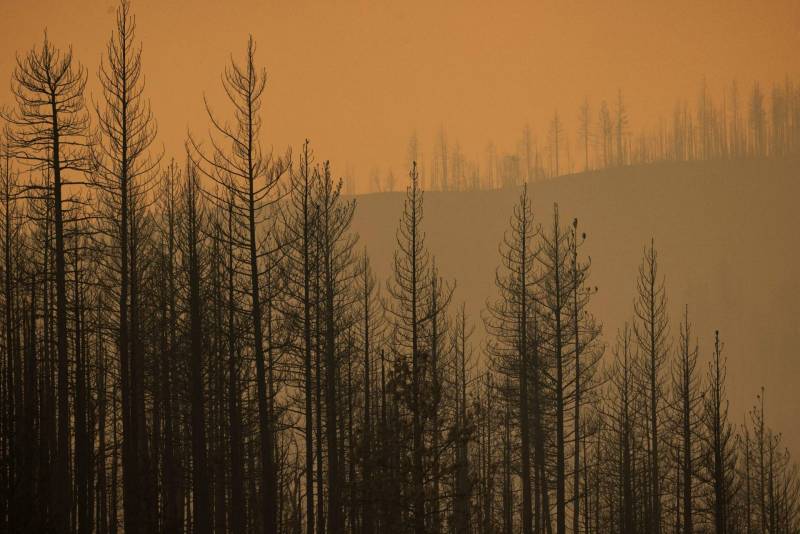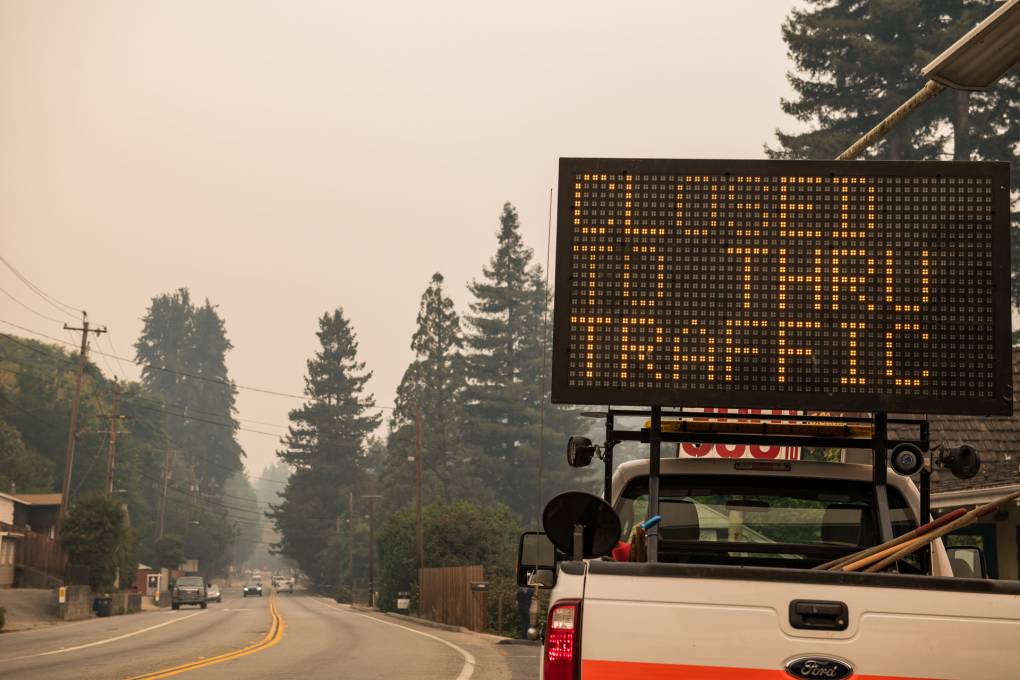Firefighting crews on the ground were trying to prevent the blaze from moving closer to the town of Yreka, population about 7,500. The blaze was about four miles away as of Monday.
On Saturday, Gov. Gavin Newsom declared a state of emergency as the McKinney Fire intensified.
The fire “destroyed homes, threatened critical infrastructure and forced the evacuation of almost 2,000 residents,” Newsom’s office wrote, in a statement. The proclamation allows Newsom more flexibility to coordinate emergency response and recovery effort decisions and to access federal aid.
A second, smaller fire in the region that was sparked by dry lightning Saturday threatened the tiny California community of Seiad.
Freeman said “there has been significant damage and loss along the Highway 96 corridor” that runs parallel to the Klamath River and is one of the few roads in and out of the region
She added: “But just how much damage is still being assessed.”
Erratic storms were expected to move through Northern California again on Monday with lightning that threatened to spark new fires in bone-dry vegetation, forecasters said. A day earlier, thunderstorms caused Southern California flash flooding that damaged roads in Death Valley National Park.
Over the weekend, California law enforcement knocked on doors to urge residents to get out and safely evacuate their livestock onto trailers. Automated calls were being sent to land phone lines as well because there were areas without cell phone service.
“We are asking people to evacuate. The area is very rural,” said Roxanne Strangfeld with Siskiyou County Probation in a video posted on Twitter. “We are noticing that there are quite a few people helping each other, which is a really wonderful thing in this time of lots of stress.”
The Pacific Coast Trail Association urged hikers to get to the nearest town while the U.S. Forest Service closed a 110-mile section of the trail from the Etna Summit to the Mt. Ashland Campground in southern Oregon.
The McKinney Fire also closed about 30 miles of State Route 96 between Scott River Road, which leads into the Klamath National Forest and State Route 263, about 10 miles northwest of Yreka.
Fire departments in the Bay Area sent firefighters to Siskiyou County to help contain the McKinney Fire and nearby wildfires.
On Friday, the U.S. House of Representatives approved wide-ranging legislation aimed at helping communities in the West cope with increasingly severe wildfires and drought — fueled by climate change — that have caused billions of dollars of damage to homes and businesses in recent years. The measure combines 49 separate bills and would increase firefighter pay and benefits, boost resiliency and mitigation projects for communities affected by climate change, protect watersheds, and make it easier for wildfire victims to get federal assistance.

